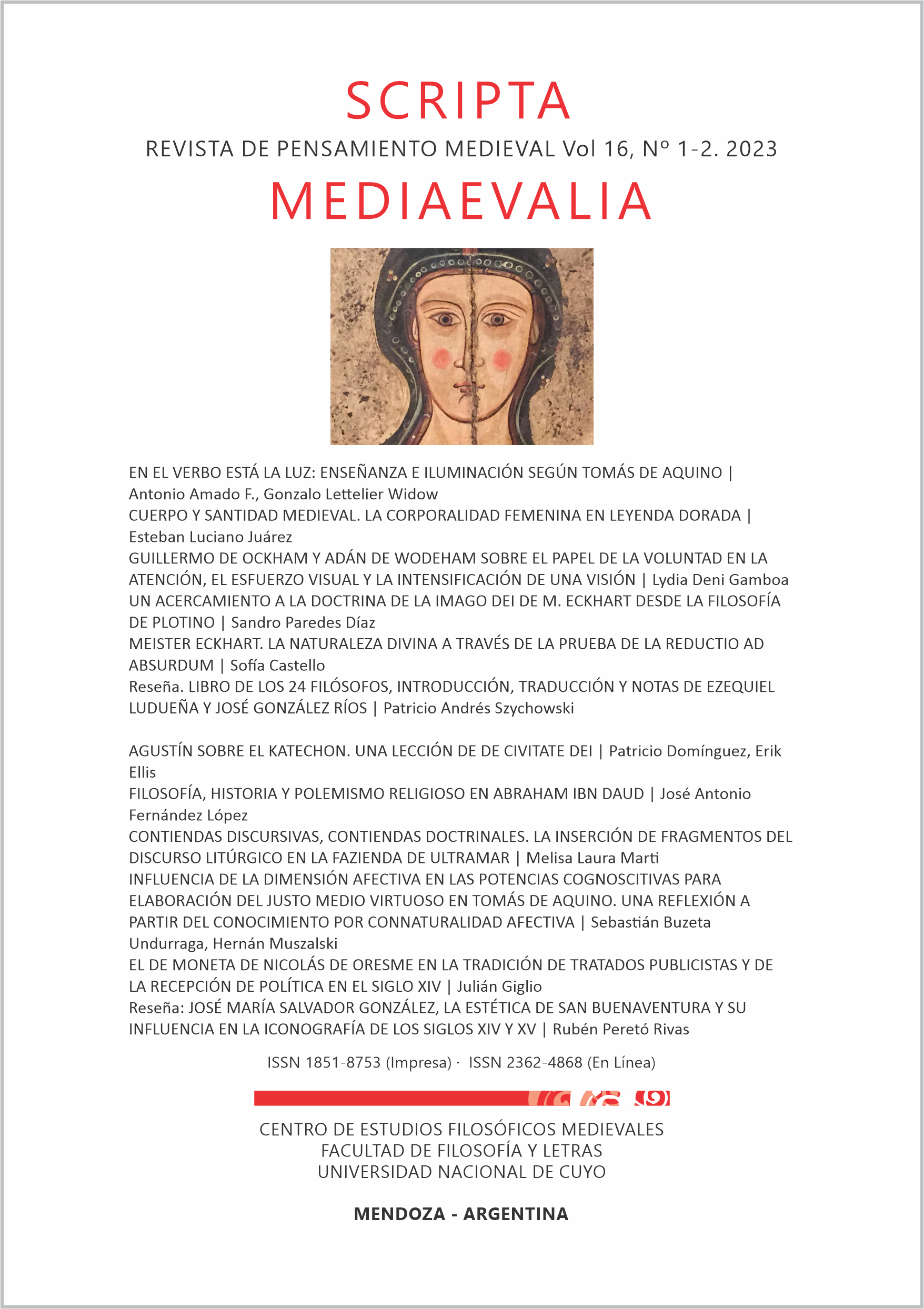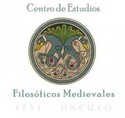Augustine on the Katechon
A Lesson from De Civitate Dei
DOI:
https://doi.org/10.48162/rev.35.029Keywords:
Augustine of Hippo, katechon, Roman Empire, Roman virtue, providenceAbstract
This article presents Augustine’s exegesis of the controversial eschatological passage of 2 Thessalonians 7 through analysis of Roman virtue in the context of the role of the Roman Empire in divine providence. In contrast to many of the Greek and Latin fathers, Augustine’s evaluation of Rome’s providential role is primarily negative: he says the Roman empire and the virtus upon which it rests are sinful but that the evils of Roman power restrain (hence katechon) worse evils. This interpretation, most clearly expressed in his City of God, differentiates Augustine from his contemporaries’ view of Rome and makes him a sui generis thinker in this regard.
References
Agamben, Giorgio. Il regno e la gloria: per una genealogia teologica dell’economia e del governo. Vicenza: Neri Pozza, 2007.
Alberigo, Joseph, ed. Conciliorum Oecumenicorum Decreta. Freiburg: Herder, 1962. Anonymous, Quod idola dii non sint. von Hartel, ed. CSEL 3.1. Vienna, 1868.
Babcock, William S., trans. The Works of Saint Augustine: A Translation for the 21st Century. Part 1, Vol. 7. Hyde Park: New City Press, 2013.
Bettenson, Henry, trans. Concerning the City of God against the Pagans. London: Penguin Books, 2003.
Bochet, Isabelle, Gustave Combes, and Goulven Madec, trans. La cité de Dieu. Nouvelle bibliothèque augustinienne 3. Paris: Institut d’études augustiniennes, 1993.
Brachtendorf, Johannes. “Cicero and Augustine on the Passions.” Revue des Études Augustiniennes 43, no. 2 (1997): 289–308.
Blönninen, Christoph. Art. “Barbarus” in Augustinus Lexikon, col 1, fasc. 4 (1986-1994) 606-607. Carrère, Emmanuel. The Kingdom. New York: Farrar, Straus and Giroux, 2016.
Clark, Gillian. “Augustine and the Merciful Barbarians.” In Romans, Barbarians, and the Transformation of the Roman World: Cultural Interaction and the Creation of Identity in Late Antiquity, edited by Ralph W. Mathisen and Danuta Shanzer, 33–42. Farnham: Ashgate, 2011.
Dyson, R. W., trans. The City of God against the Pagans. Cambridge: Cambridge University Press, 1998.
Eusebius, Praeparatio evangelica. Nieto and Bécares, ed. Biblioteca de los Autores Cristianos: Madrid, 2016.
Eusebius, Demonstratio evangelica. In Heikel, ed., Eusebius Werke, Band VI. Berlin: De Gruyter, 2012.
Gentili, Domenico, trans. La città di Dio. Roma: Città Nuova, 2000.
Inglebert, Hervé. “Les causes de l’existence de l’Empire romain selon les auteurs chrétiens des IIIe - Ve siècles.” Latomus 54, no. 1 (1995): 18–50.
Irwin, T. H. “Splendid Vices? Augustine For and Against Pagan Virtues.” Medieval Philosophy and Theology 8, no. 2 (1999): 105–127.
Löwith, Karl. Meaning in History. Chicago: University of Chicago Press, 1970.
Jerphagnon, Lucien, Sophie Astic, Jean-Yves Boriaud, and Jean-Louis Dumas, trans. Oeuvres. II, la Cité de Dieu. Paris: Gallimard, 2000.
Maluenda, Tomás. De Antichristo. Lyons: Societatis Bibliopolarum, 1647.
Marenbon, John. Pagans and Philosophers: The Problem of Paganism from Augustine to Leibniz. Princeton: Princeton University Press, 2015.
Markus, R. A. Saeculum: History and Society in the Theology of St. Augustine. Cambridge: University Press, 1970.
Minutius Felix, Octavius. Glover and Rendall, ed. Cambridge, MA: Harvard University Press, 1931.
Morán, Jose, trans. Obras de San Agustin: edicion bilingue. Tomo XVI-XVII, Tomo XVI-XVII. Madrid: Biblioteca de Autores Cristianos, 1958.
Morgenstern, Frank. Die Briefpartner des Augustinus von Hippo: prosopographische, sozial- und ideologiegeschichtliche Untersuchungen. Bochum: N. Brockmeyer, 1993.
Moriarty, Michael. Disguised Vices: Theories of Virtue in Early Modern French Thought. Oxford: Oxford University Press, 2011.
O’Meara, Dominic. Platonopolis: Platonic Political Philosophy in Late Antiquity. Oxford: Oxford University Press, 2005.
Origen, Contra Celsum. Paris: Sources Chrétiennes/Éditions du Cerf 1976.
Plotinus, Opera. Editio Minor. Oxford: Oxford University Press, 1964-1982.
Parma, Christian. Pronoia und Providentia: der Vorsehungsbegriff Plotins und Augustins. Leiden: Brill, 1971.
Santamarta del Río, Santos, and Miguel Fuertes Lanero, trans. La ciudad de Dios. Madrid: Bibliotecas de Autores Cristianos, 2007.
Sallust, De Catilinae Coniuratione, Rolfe, ed. Cambridge, MA: Harvard University Press, 2013.
Schmitt, Carl. Land und Meer: eine weltgeschichtliche Betrachtung. Cologne: Hohenheim, 1981.
Tertullian, Apologeticum. Glover and Rendall, ed. Cambridge, MA: Harvard University Press, 1931.
Tertullian, Treatise on the Resurrection. De Resurrectione Carnis Liber. Evans, ed. London: SPCK, 1960. Tertullian, Ad Nationes. Boerfels, ed. CSEL 20, Vienna, 1890.
Thimme, Wilhelm. Vom Gottesstaat. Munich: dtv Verlagsgesellschaft, 1997.
Weber, Robert, and Roger Gryson. Biblia sacra: iuxta Vulgatam versionem. Stuttgart: Deutsche Bibelgesellschaft, 2015.
Weima, Jeffrey A. D. 1-2 Thessalonians. Baker Exegetical Commentary on the New Testament. Grand Rapids: Baker Academic, 2014.
Downloads
Published
How to Cite
Issue
Section
License

This work is licensed under a Creative Commons Attribution-NonCommercial-ShareAlike 3.0 Unported License.






































